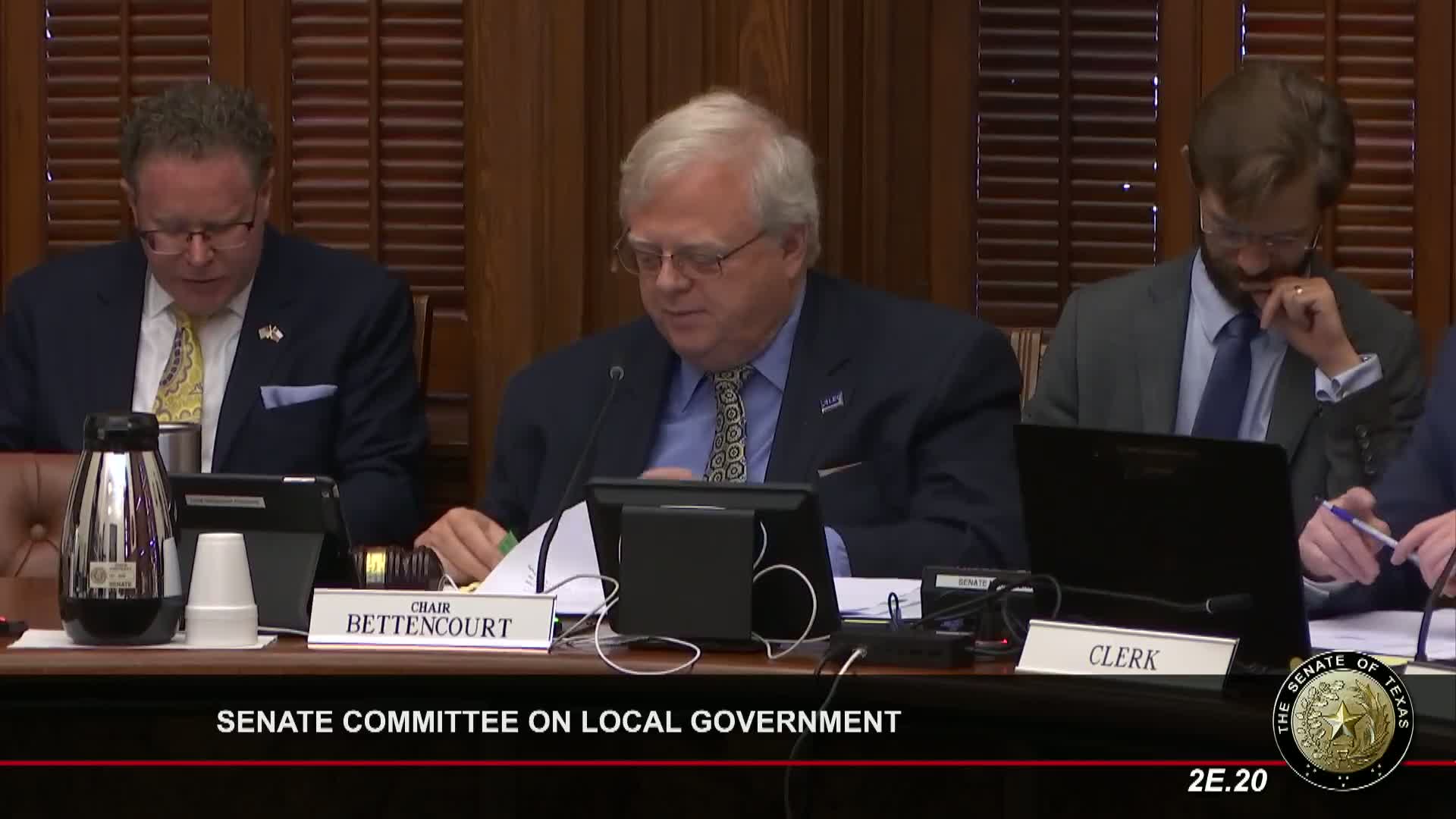Texas House Committee Advances HB 3526 for Local Government Bond Transparency
May 08, 2025 | Committee on Local Government, Senate, Legislative, Texas
This article was created by AI summarizing key points discussed. AI makes mistakes, so for full details and context, please refer to the video of the full meeting. Please report any errors so we can fix them. Report an error »

The Senate Committee on Local Government convened on May 8, 2025, to discuss House Bill 3526, aimed at enhancing fiscal transparency for local government bond obligations. The bill, presented by Representative Priglione and sponsored in the Senate by Senator West, proposes the establishment of a searchable database that tracks local bond obligations, including their issuance, repayment status, and related election information.
Senator West emphasized the importance of this legislation, which mandates that local governments provide detailed reports to the bond review board before and after elections concerning bond issues. Additionally, the bill requires annual reports on unissued securities and biennial reports on bond repayments, ensuring that this information is readily available during legislative sessions.
Support for the bill was voiced by Carl Walker from the Texas Taxpayers and Research Association, who highlighted the need for transparency in local government debt. He noted that the proposed database would help taxpayers better understand the debt service rates and engage more effectively in the rate-setting process. Walker pointed out that current systems do not allow for easy comparisons of inflated rates against minimum debt service levels.
James Quintero from the Texas Public Policy Foundation also testified in favor of the bill, citing the significant amounts of public debt being considered in recent elections. He reported that voters have faced propositions totaling over $41 billion in new principal debt, underscoring the necessity for transparency in the borrowing process. Quintero argued that providing accessible financial information would empower voters and promote informed decision-making.
The committee opened the floor for public testimony, indicating strong support for the bill among stakeholders. The discussions highlighted a growing concern over local government debt and the need for mechanisms that foster accountability and transparency in financial dealings. As the bill progresses, it aims to equip Texans with the tools necessary to engage meaningfully in local governance and fiscal matters.
Senator West emphasized the importance of this legislation, which mandates that local governments provide detailed reports to the bond review board before and after elections concerning bond issues. Additionally, the bill requires annual reports on unissued securities and biennial reports on bond repayments, ensuring that this information is readily available during legislative sessions.
Support for the bill was voiced by Carl Walker from the Texas Taxpayers and Research Association, who highlighted the need for transparency in local government debt. He noted that the proposed database would help taxpayers better understand the debt service rates and engage more effectively in the rate-setting process. Walker pointed out that current systems do not allow for easy comparisons of inflated rates against minimum debt service levels.
James Quintero from the Texas Public Policy Foundation also testified in favor of the bill, citing the significant amounts of public debt being considered in recent elections. He reported that voters have faced propositions totaling over $41 billion in new principal debt, underscoring the necessity for transparency in the borrowing process. Quintero argued that providing accessible financial information would empower voters and promote informed decision-making.
The committee opened the floor for public testimony, indicating strong support for the bill among stakeholders. The discussions highlighted a growing concern over local government debt and the need for mechanisms that foster accountability and transparency in financial dealings. As the bill progresses, it aims to equip Texans with the tools necessary to engage meaningfully in local governance and fiscal matters.
View full meeting
This article is based on a recent meeting—watch the full video and explore the complete transcript for deeper insights into the discussion.
View full meeting
